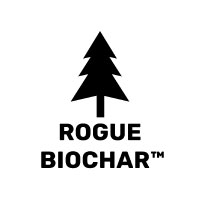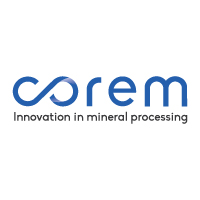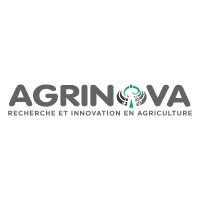Who can benefit from GECA’s services?
We are experts in pyrolysis, biochar and/or wood vinegar related projects. Therefore, several types of companies and government instances can benefit from our services.
Take a look at some of our projects
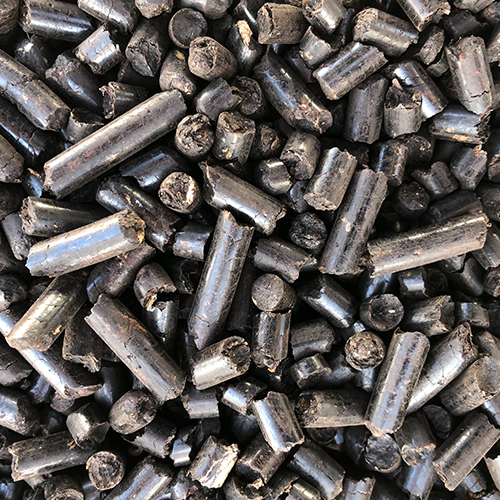
Pyrolysis project development
Industry: Forestry and others
Location: Canada
Industry: Forestry and others
Location: Canada
Some Facts:
Thousands of tonnes of forest residues are left unused every year in Canada. Using pyrolysis, these residues will be transformed into biochar to generate renewable products and local economic development. The company developing this project is an expert in energetic valorization of biomass.
Our Mandate:
GECA was mandated to guide throughout the project development, starting with market studies and technology selection, followed by the feasibility study, product design and market development.
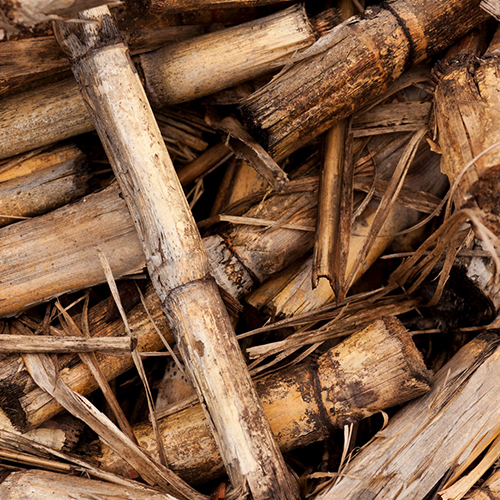
Power plant using biocoal from local agroforestry
Industry: Energy and environment
Location: Caribbean islands
Industry: Energy and environment
Location: Caribbean islands
Some Facts:
Some islands in the Caribbean have decided to improve their energy self-sufficiency and are looking for renewable energy options. Several companies are collaborating to develop a power plant project using local biomass grown on contaminated soils and sargassum to supplement the energy needs of geothermal supply. The biomass will be transformed by pyrolysis / torrefaction to stabilize it before it is used in the power plant.
Our Mandate:
GECA supports the team from the point of view of agricultural production, sargassum and thermal transformation of the biomass before its use in the power plant. We evaluate the mode of production, harvesting, stabilization, storage and various other aspects in the project.
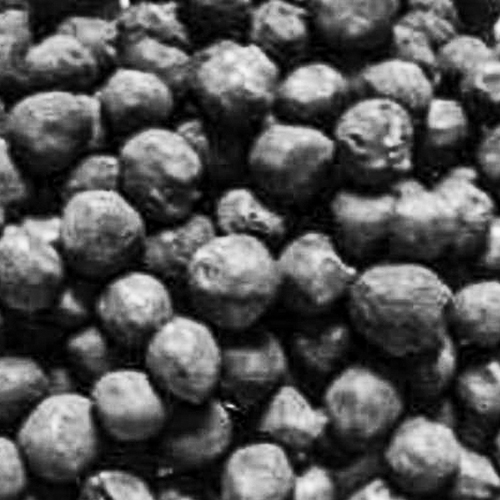
Replacing anthracite by biocoal for the iron ore industry
Industry: Metallurgy
Location: Canada
Industry: Metallurgy
Location: Canada
Some Facts:
Large international iron ore industries are seeking solution to replace anthracite in some of their Canadian operations since they will soon have to pay carbon emission penalties. The penalties are currently $30/t of equivalent CO2 emissions and increasing by $10/t every year. Knowing that that these companies use about 150 000 t coal/year in every plant, the cost of these penalties will be adding up quickly. The solution resides in the use of biocoal generated from forest residues in North America.
Our Mandate:
GECA works alongside a research center and mining industries to define specs and design biocoal to ensure proper storage, handling, chemical reactions and perfect thermodynamic in the plants’ processes. GECA selected biocoal producers in Canada and USA and is now supporting them to reach the product quality that will be required to replace the currently used anthracite.
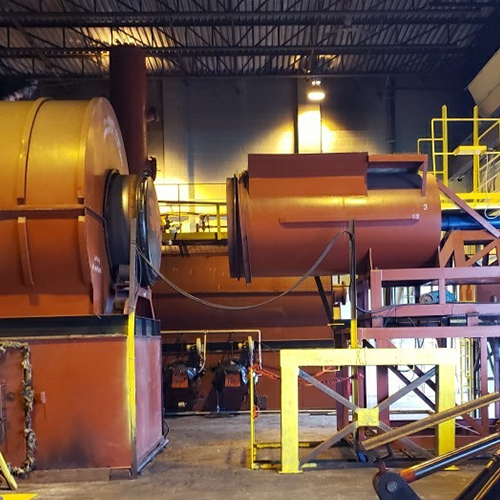
Pyrolysis of waste plastics into gas and diesel
Industry: Recycling and energy
Location: Canada
Industry: Recycling and energy
Location: Canada
Some Facts:
One of the largest waste management company in North America aims to transform large amounts of single use plastics, due to China closing its doors and because these residues fill up its landfill too fast. To overcome these problems, the company is planning to transform these wastes through pyrolysis to create renewable, value-added products.
Our Mandate:
GECA evaluated the company’s feedstock and suggested a pyrolysis technology to transform their plastics into diesel and gas.
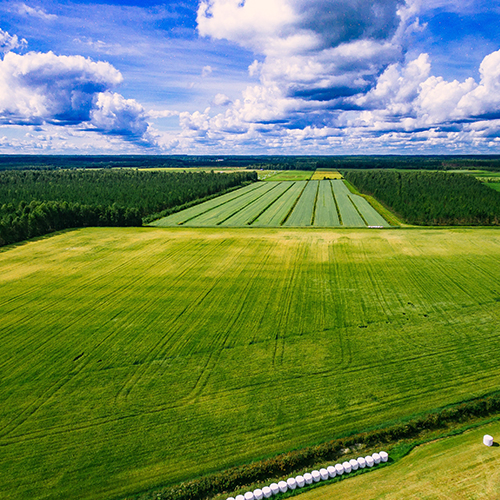
Biochar for manufacturing specialized fertilizers
Industry: Agriculture
Location: USA
Industry: Agriculture
Location: USA
Some Facts:
One of the largest agricultural company in the US (Fortune 500) foresees the declining reserve of fertilizers around the world and the increasing pressure for renewable products. This company plans to replace mined products by biochar in their specialized products. Biochar has growth-enhancing properties for plants, but has to be chosen adequately to optimize results.
Our Mandate:
GECA supported this company in the selection of biochar suppliers for their new products. This was crucial, as the biochar required for this application needed to have specific physico-chemical properties to optimize results. This product is now available for purchase.
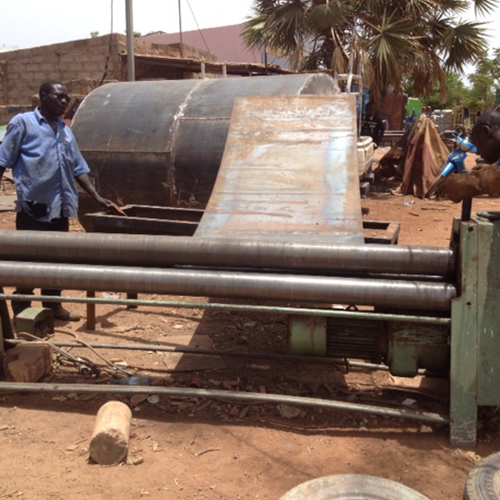
Replacing fossil coal and increasing the autonomy of villages
Industry: Agriculture
Location: Burkina Faso
Industry: Agriculture
Location: Burkina Faso
Some Facts:
To produce shea butter, often used in cosmetics, producers need charcoal, fossil coal, or wood to cook their shea nuts. These producers need a better alternative in order to become more resilient to price changes of coal and to protect their health and their shea trees. In addition, when preparing the shea fruits, they remove the shell and dispose of it without using it. This project uses the shells to produce biochar.
Our Mandate:
GECA supports the women producers’ association through design and training. We trained locals to manufacture small pyrolysis ovens and to produce biochar from the shea fruit shells. GECA also provided courses on the use of biochar for cooking and for improving soil conditions.
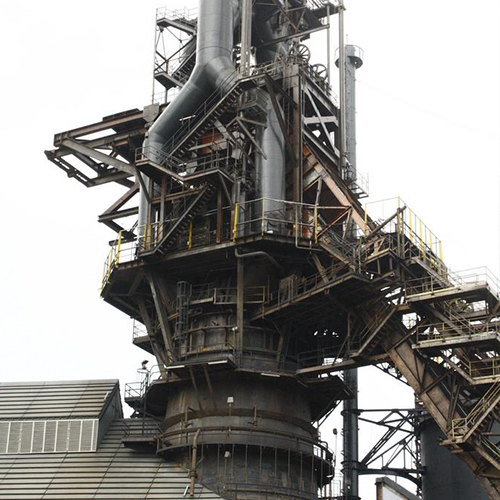
Development of mixed coal/biocoal products for adaptation to renewable energy
Industry: Heavy industry
Location: UK
Industry: Heavy Industry
Location: UK
Some Facts:
Heavy industries need to use larger proportions of renewable energy, but can’t do it directly without technical adaptation or without large suppliers. A Provider of coal-based energy products wants to develop this mixed product for their clients and is seeking biochar producers and collaborators in North America to do so.
Our Mandate:
GECA was mandated to provide a list of North American producers that could potentially contribute to the development of these new mixed coal/biocoal products based on the type of technology they have. GECA is also responsible for putting in contact this buyers and the suppliers.

Transforming waste tyres into oil and black carbon
Industry: Recycling, automobile and energy
Location: Canada
Industry: Recycling, automobile and energy
Location: Canada
Some Facts:
Each person on earth generates about 1 waste tyre per year. Generally, tyres are shredded into crumb rubber for synthetic fields or used to make cow mats. However, when this second life runs out, they might end up in the landfill. A promoter decided to transform OTR tyres and other waste tyre products into oil, black carbon, and iron using pyrolysis.
Our Mandate:
GECA provided services relative to permitting, environmental aspects, technology description and land selection.
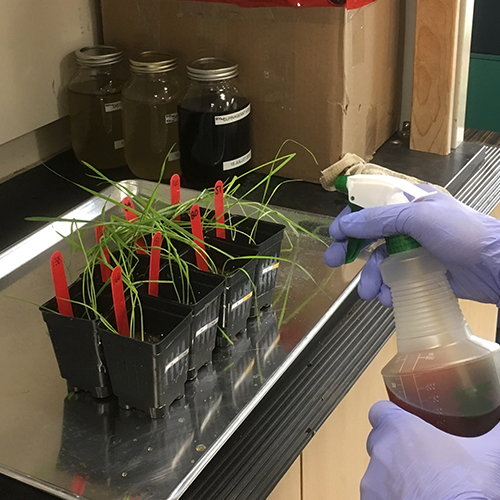
Using a pyrolytic co-product as a potential herbicidal agent
Industry: Agriculture and R&D
Location: Canada
Industry: Agriculture and R&D
Location: Canada
Some Facts:
Herbicides that have been used for decades are now being pushed out of the market due their toxicity for animals and humans. The agricultural industry is transitioning towards regenerative and organic practices. A pyrolytic product manufacturer decided to examine the effect of its wood vinegar as an organic herbicide.
Our Mandate:
GECA was mandated to write a grant proposal, plan and direct the research project, interpret and write the report and recommendations about the use of this wood vinegar for weed control. The manufacturer might come out with an herbicidal product based on the results.
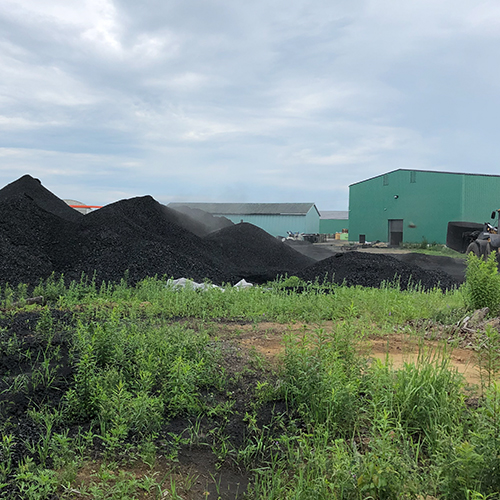
Full update of a biochar plant
Industry: Energy and retail products
Location: Canada
Industry: Energy and retail products
Location: Canada
Some Facts:
The biochar plant has been in operations for nearly 70 years during which they added equipment for their immediate needs. This resulted in technological and operational inefficiencies over time. They are looking to optimize their operations, decrease their emissions and develop new markets for their products.
Our Mandate:
GECA was mandated to design and oversee the optimisation of production processes through equipment and technology upgrades and operation management. Additionally, GECA is responsible of developing new ways of using their co-products on site to increase efficiency, as well as of developing new products to reach new markets. Grant proposals were also written by GECA for financial support.






